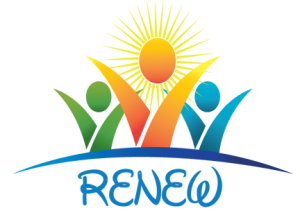Category: Humanity
Written by: Usha Chaudhary
October 14, 2017
Decades of research, study and contemplation by psychologists and educators suggest
that the missing link in today’s traditional education systems over-stimulates the left
brain, while neglecting the right hemisphere of the brain, which relates to self-
awareness, interconnectedness, creativity, love, compassion, adaptation, and reverence
toward nature, where true knowledge resides. Therefore, RENEW (Reform Education for
a New World) advocates an augmentation to our existing education system that
incorporates human and ethical values, personal and social responsibility, inter-personal
relationships, public service, deep relaxation, music, dance, lifestyle, and forward-
looking creative thinking. It is this balanced and integrated learning that will result in a
more creative, peace-loving, and harmonious society for our future generations.
It is interesting to note that the core concepts that underlie RENEW are not completely
foreign to the education space. In fact, one of the pioneers and early proponents of
education reform, Jiddu Krishnamurti explains in his book “Education and the
Significance of Life” (1953) that education should not condition the child, but build
awareness of our inevitable conditioning by society and social values. He stresses “self-
knowledge”, in that education should awaken the capacity in a child to be self-aware,
and not merely impart mechanical, technology-based learning that over-emphasizes
technique and ignores the total process of life itself. Similar to what RENEW prescribes,
Krishnamurti stresses the need for an integrated approach to education that activates
and stimulates both hemispheres of the brain, and the characteristics associated with
them.
In his book “Magical Parent; Magical Child” (2004), Joseph C. Pearce focuses on the role
of parents, families, coaches, and teachers in education. He encourages adults to
rediscover their playful inner child as they learn from, teach, and mentor children. It is
changing the adult that changes the environment, which helps transform the child. This
redefinition of the adult-child relationship optimizes the interface and enables the child
to mirror a new creative energy that in turn cycles back and transforms the adult.
Similarly, RENEW focuses on redefining the role of parents, families, and teachers in the
education process as well as provides techniques that emphasize learning through
nature and the environment.
Sraddhalu Ranade’s “Introduction to Integral Education” expands further on the
concepts noted above. Ranade believes that the core objective of education should be
to teach children to be good human beings capable of exceeding his/her humanness and
achieving something beyond. His five dimensions of teaching include: 1) teaching the
body to be spontaneously beautiful; 2) teaching the emotions to flow spontaneously; 3)
teaching the mind to always seek perfection; 4) teaching “I”-ness, i.e., our essence and
souls within; and 5) teaching spirituality and consciousness. Ranade goes on to describe
the core elements of education as solely being derived from nature – earth (the child);
water (nourishment); fire (thirst for knowledge); air (means of communication; and
ether (the environment in which education takes place). He too believes that the adult-
child relationship is the key to education. For optimal teaching and learning, the adult
must assume the role of authority, friend, helper, and his/her inner child in order to
make a personal connection and bond with the child. It is this bond of relationship and
love that enables and optimizes the natural flow of education.
The application and adoption of these transformational education concepts and
methods have been slow around the world but perhaps the most progressive and stark
example of its adoption has been experienced in Finland. Finland’s education system
shows that “less is more” and this is exemplified in several ways for both teachers and
students: 1) Less formal schooling allows children to learn through playing and exploring
and then starting formal education when they are developmentally ready, at age 7; 2)
Less time in school enables students to reflect and absorb their learning; it enables
teachers to spend more time on planning; and enables both teachers and students to be
well rested and ready to teach/learn; 3) Less teachers results in more consistency, care,
and connection with the student; 4) Less/fewer classes allows for several breaks and
gives students time to digest their learning and exercise their bodies and muscles
resulting in greater focus and concentration; 5) Less testing results in more learning due
to reduced stress for both teachers and students; 6) Less topics enables delving into
greater depth on specific topics to ensure optimal learning; 7) Less homework places
greater emphasis on participation; 8) Less students per class promotes more individual
attention to the student; and 9) Less structure leads to greater trust – society trusts the
schools to hire good teachers; schools trust the teachers to be highly trained individuals;
parents trust the schools and teachers to provide quality and individualized education to
their children; and children trust their teachers, parents, and school to make learning
enjoyable and creative vs competitive and punitive.
As Albert Einstein so aptly put it, “Education is what remains after one has forgotten
what one has learned in school”. He also observed that “No problem can be solved by the
same mind that has created it." Einstein’s brilliance is an inspiration to the scientific and
educational communities alike. He professed the importance of imagination, curiosity,
and the strength of character as being essential ingredients to education and learning.
He recognized that a transition from the existing partial and academic-centric education
process to a more integrative education system requires vision, leadership,
commitment, and collaboration. RENEW is a platform and program to help us do just
that, not by substituting the existing education systems but by providing an integrated
learning to supplement our traditional academic curricula – by adding an additional dimension of experiential lessons focused on character-building, civic duty, ethics, morality, and connection with and reverence for nature. It may take generations to be fully functional and effective, but we must begin now and welcome all to join our movement to reform education for a new world!



